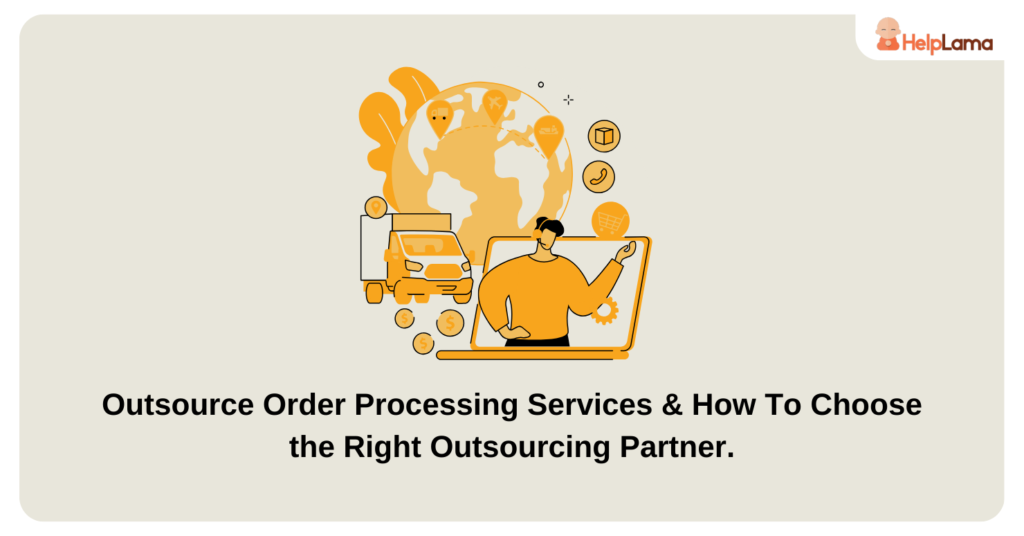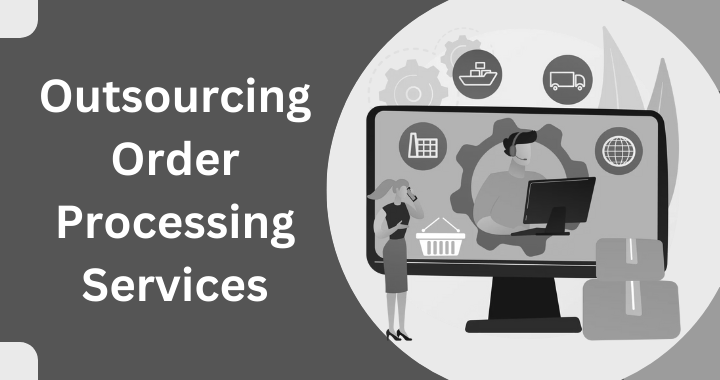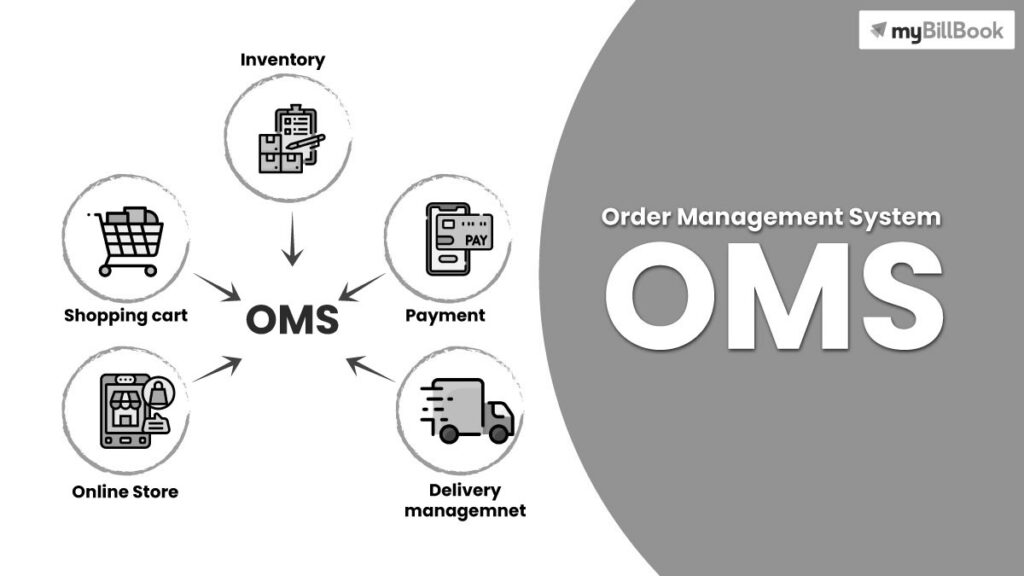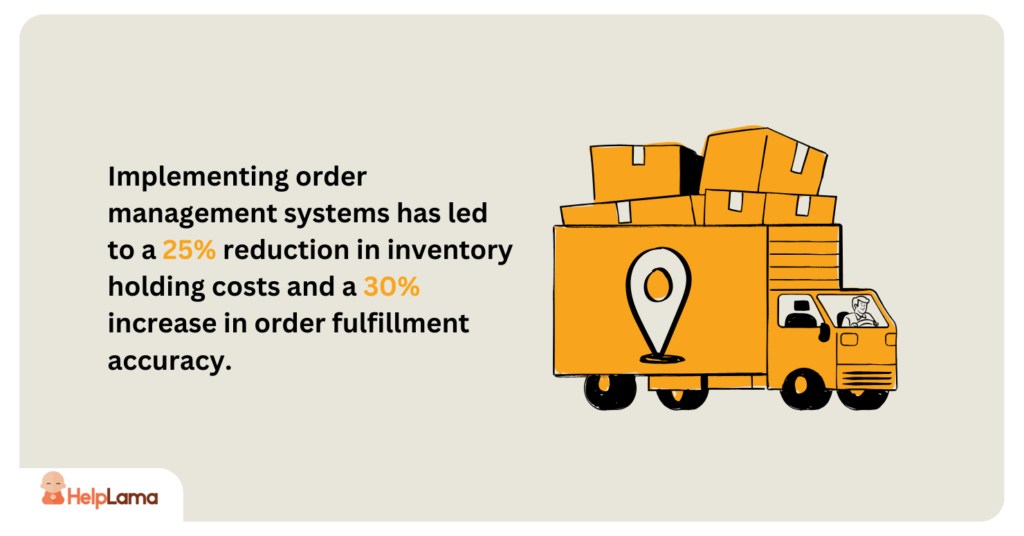Last Updated: April 2025
Order processing services are a crucial part of running a successful business. From receiving an order to ensuring it reaches the customer on time, the process needs to be smooth and efficient. However, managing order processing in-house can be time-consuming and costly, especially as your business grows.
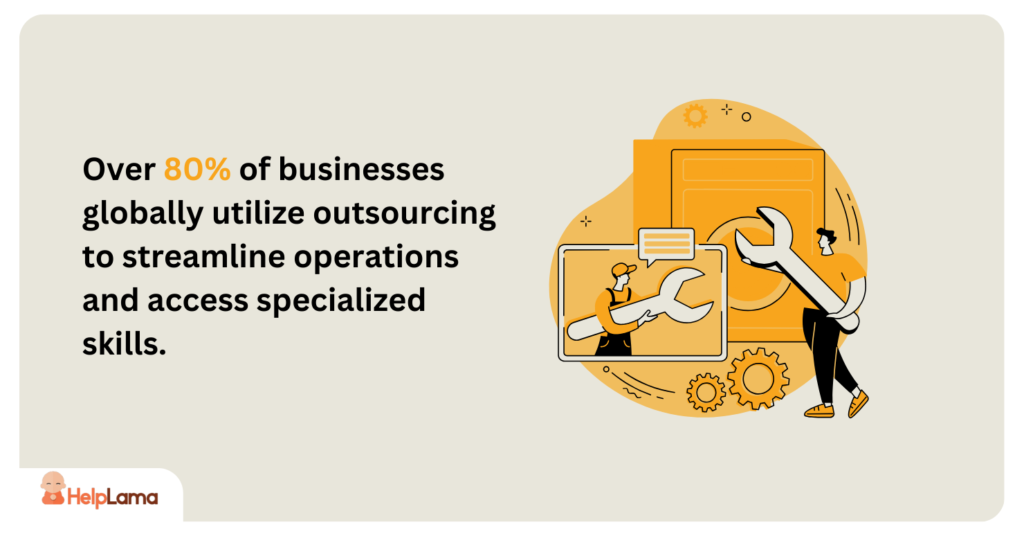
Over 80% of businesses globally utilize outsourcing to streamline operations and access specialized skills.
That’s where outsourcing comes into play. By choosing the right outsourcing partner for order processing services, businesses can improve efficiency, reduce costs, and enhance customer satisfaction.
In this article, we’ll explore the key components of order processing services, why outsourcing makes sense, the benefits and challenges involved, and how to select the right outsourcing partner for your business.
Table of Contents
What Are Order Processing Services?
Order processing services refer to the complete cycle of handling customer orders from start to finish. This includes order entry, verification, inventory management, fulfillment, and delivery. Efficient handling of these tasks ensures that customers receive their orders accurately and on time, which directly impacts customer satisfaction and business performance.
Key Components of Order Processing
The process of order processing typically includes the following steps:
- Order Entry – Capturing order details such as product type, quantity, and delivery information.
- Order Verification – Ensuring the order details are correct and complete.
- Inventory Management – Checking stock availability and managing supply levels.
- Order Fulfillment – Picking, packing, and shipping the order to the customer.
- Tracking and Reporting – Monitoring the status of orders and providing updates to customers.
When managed effectively, these steps create a smooth flow of operations, reduce errors, and improve customer experience.
Why Outsource Order Processing Services?
Managing order processing services in-house can be overwhelming, especially for growing businesses. As order volumes increase, handling them internally becomes more complex and resource-intensive. Outsourcing helps businesses offload these tasks to experts, allowing them to focus on core business operations.
Advantages of Outsourcing Order Processing Services
1. Cost Savings
By outsourcing, companies do not need to employ local employees to manage orders. Your company saves expenses connected to establishing and operating order management systems when you outsource this function. A dependable outsourcing company already owns the organization and specialized capabilities which enable smooth process management.
2. Improved Efficiency and Accuracy
The outsourcing provider tackles order processing with modern technologies in combination with knowledgeable personnel to execute tasks rapidly while preserving precision. Such measures decrease the chance of mistakes and delays, which results in better customer satisfaction.
3. Scalability
After outsourcing, order management businesses can increase or decrease their order processing operations according to their current market requirements. When peak seasons arrive together with sales events, an outsourcing partner improves their capacity to manage greater order volumes while maintaining high-quality standards.
4. Access to Advanced Technology
Order processing service providers implement automation tools together with AI technology and real-time tracking systems for order management operations. The use of such outsourced services enables business owners to stay ahead of the competition via cutting-edge technologies without needing to purchase their own.
5. Focus on Core Business Activities
The process of delegating order management lets businesses allocate their resources toward developing products and marketing their products as well as improving customer support. The dual benefit of business advancement along with safe order management falls under professional order handling services.
Challenges of Outsourcing Order Processing Services
While outsourcing offers many benefits, it also comes with some potential challenges:
1. Communication Barriers
Operating in different countries could affect the speed of communication since time zones clash and there are additional language challenges.
Daily meetings should be established so employees remain coordinated with their international counterparts.
2. Loss of Control
You might feel restricted regarding the order processing process after outsourcing tasks to another entity.
Leaders should create thorough performance agreements and then conduct consistent provider performance assessments.
3. Data Security Risks
Giving your customer data to a third party will heighten the probability of experiencing security breaches.
The solution involves selecting a provider whose data protection protocols and compliance standards adhere to strict standards.
4. Finding the Right Fit
Every third-party organisation furnishing outsourcing support exhibits different levels of expert knowledge alongside business experience.
You should consider multiple potential partners for business needs and then select those who demonstrate a proper understanding of your requirements.
How to Choose the Right Outsourcing Partner for Order Processing
Selecting the right outsourcing partner for order processing services is critical to ensuring smooth business operations and customer satisfaction. Here are key factors to consider when choosing an outsourcing provider:
1. Experience and Industry Expertise
Choose a provider with a proven track record in handling order processing services for businesses in your industry. Industry-specific experience ensures that the provider understands the unique challenges and requirements of your business.
2. Technology and Infrastructure
Evaluate the technology and systems the provider uses for order processing. Look for features such as real-time tracking, automated order management, and secure data handling. Advanced technology ensures efficiency and accuracy.
3. Reputation and Reliability
Check the provider’s reputation through reviews, testimonials, and case studies. A reliable partner should have a history of delivering high-quality service and meeting deadlines consistently.
4. Cost and Value
While cost is important, don’t base your decision solely on the lowest price. Focus on the value offered — including accuracy, speed, customer support, and scalability. Look for a partner that provides the best balance of quality and affordability.
5. Flexibility and Scalability
Your business needs may change over time, so choose a provider that can adjust to your order volumes and business growth. A scalable solution ensures that the provider can handle fluctuations without compromising performance.
6. Communication and Transparency
Clear communication is essential for a successful outsourcing relationship. Choose a partner who is responsive, transparent, and open to feedback. Regular reporting and performance reviews help maintain accountability and trust.
7. Compliance and Security
Ensure the provider follows industry regulations and data security standards. Protecting customer information is critical to maintaining trust and compliance with legal requirements.
Steps to Implement Outsourced Order Processing
Once you’ve selected the right partner for order processing services, the next step is to integrate their services into your business operations. Here’s how to do it effectively:
1. Define Your Goals and Expectations
Set clear objectives and key performance indicators (KPIs) for the outsourcing provider. This helps measure performance and identify improvement areas.
2. Develop a Transition Plan
Create a detailed plan for transferring order processing tasks to the outsourcing partner. This includes training, data migration, and setting up communication channels.
3. Monitor Performance
Track order processing performance regularly through reports and audits. Look for improvements in order accuracy, processing time, and customer satisfaction.
4. Provide Feedback and Adjust
Maintain open communication with the outsourcing provider and provide regular feedback. Address any issues promptly and adjust processes as needed to improve performance.
Future Trends in Outsourced Order Processing
Technological advancement and the changing of customer expectations are the most impacting factors on the future of order processing services.
1. Automation and AI
Automation and AI platforms are joining order processing with the care of optimizing the related work, decreasing the mistakes, and increasing the workflow.
2. Blockchain for Secure Transactions
Blockchain facilitates security and transparency in the process of order handling. The tamper-proof part is required, to make the customer feel secure.
3. Real-Time Tracking and Reporting
One of the customers’ most craving needs is a real-time update on their orders. Sophisticated tracking systems give companies the ability to provide reliable delivery time estimates and stay in touch with customers.
4. Integration with E-commerce Platforms
Most of the service providers of order processing according to this day are taking advantage of the e-commerce platforms like Shopify and WooCommerce that offer integration without any interruption. This consequently implies the formation of a single system for the management of orders and established customer interactions.
How to Find Outsourcing Companies
Finding the right outsourcing company for order processing requires thorough research and evaluation. Start by identifying your business’s specific needs and goals. Consider the size of your order volume, the complexity of your product catalog, and your customer service requirements.
Once you have a clear understanding of your needs, you can begin the search process.
- Online Directories and Marketplaces – Websites such as Clutch, Upwork, or GoodFirms only have the best outsourcing companies that have ratings and reviews. This type of platform will provide you with the ability to find such companies by filtering them by industry, location, and expertise.
- Industry Recommendations – Getting involved with industry peers in your network, and joining business forums can make it easier to find reliable co-dev partners. Information provided by the kind of company you intend to partner with, if they have faced such needs, will be a great pointer.
- Trade Shows and Conferences – Last but not least, being socially visible helps meet other outsourcing companies. This way, you get to evaluate their proficiency, to discuss your specific needs and, of course, you can gauge their attitude.
- Request Proposals and Quotes – The first step to a successful partnership with a provider is to get them to engage in a dialogue about your needs, and then to ask them to provide you with a detailed plan. Among different factors, review their cost, options, and period, to find what meets your requirements very well.
- Trial Period – Always start with a trial period before you commit to a long-term agreement. Doing this gives you the chance to weigh the performance of the outsourcing partner and their ability to meet your expectations without heavy commitment towards the beginning.
Carefully vet potential partners by checking their reputation, industry experience, and customer reviews. Choose a company that demonstrates a strong understanding of your business model and offers the flexibility to scale as your business grows.
Order Management System Examples
An effective order management system (OMS) is crucial for handling customer orders efficiently and accurately. Modern order management services leverage automation, real-time tracking, and advanced reporting to improve order fulfillment and customer satisfaction. Here are some popular order management system examples:
- Shopify Plus – Shopify Plus is a cutting-edge order management tool specifically created for e-commerce businesses. It has a real-time inventory tracking system, automated order fulfillment, and multi-channel integration that the management of large order volumes more comfortable and faster.
- NetSuite – A cloud-based ERP system, NetSuite is a cloud-based ERP system and comes with strong order management services. NetSuite offers automated order processing, as well as real-time inventory management, and customer relationship tracking which is just perfect for the business that is growing.
- Zoho Inventory – Zoho Inventory is a tool that gives small and medium-sized businesses order processing facilities like order tracking, warehouse management, and automated invoicing. With its affordable pricing, it is the startup company’s most sought-after product.
- ShipBob – ShipBob is a third-party logistics (3PL) platform that oversees order fulfillment and shipment. It works well with major e-commerce platforms as well as has features like real-time tracking and inventory updates.
- Brightpearl – Brightpearl is designed specifically for retailers and wholesalers. It is offered through an integrated multi-channel order management system, automatic inventory updates, and customer communication features that streamline the order fulfillment process.
Choosing the right order management services depends on your business size, order volume, and complexity. A scalable and feature-rich OMS ensures that your business can handle peak demand while maintaining order accuracy and customer satisfaction.
Helplama: Best Outsource Order Processing Agency
Helplama is a leading provider of outsourced order processing services, combining automation with expert human support to deliver efficient and accurate order handling. Their solution is designed to help businesses manage customer orders across multiple communication channels, including email, phone, and live chat. By automating order status updates and tracking, Helplama reduces processing time and minimizes errors.
Key Features:
- 24/7 Support: Helplama offers round-the-clock customer support via chat, email, and phone to ensure orders are processed without delays.
- Multi-Channel Integration: Orders from different platforms (e-commerce, marketplaces, websites) are unified into a single interface for streamlined processing.
- Automated Order Tracking: Customers receive real-time order updates and tracking information to enhance transparency.
- Performance Monitoring: Helplama provides detailed insights into agent performance and customer satisfaction, allowing businesses to optimize their order processing strategy.
- Custom Onboarding and Training: Helplama creates tailored training programs to align with business needs, ensuring consistent service quality.
- Return and Refund Management: The platform also handles customer inquiries related to returns, refunds, and order modifications efficiently.
Helplama’s combination of automation, human expertise, and detailed performance tracking makes it a reliable partner for businesses looking to improve their order fulfillment processes.
Conclusion
Outsourcing order processing services is a strategic move for businesses looking to improve efficiency, reduce costs, and enhance customer satisfaction. By choosing the right outsourcing partner, businesses can access advanced technology, industry expertise, and scalable solutions.
Implementing order management systems has led to a 25% reduction in inventory holding costs and a 30% increase in order fulfillment accuracy.
Carefully evaluate potential partners based on experience, technology, cost, and communication to find the best fit for your business. With a well-managed outsourcing strategy, you can streamline your operations, meet customer expectations, and drive business growth.

